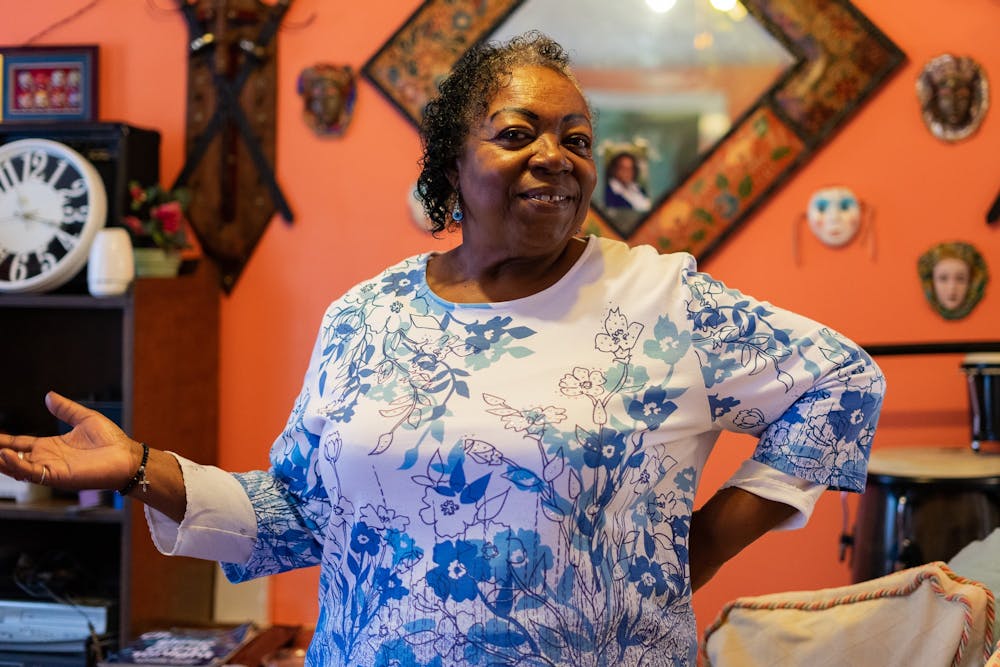She also completed over 300 hours of sweat equity.
Habitat requires homeowners to "put in (275) hours of sweat equity building their homes and the homes of their neighbors," according to its website.
“Sweat equity” serves as a down payment and reduces the cost of production of the home.
Having homebuyers and volunteers build Habitat homes mitigates spending extra on hiring construction workers, Prichard said.
“You get the feel of true homeownership because you’re building from the ground up,” Shirer-Mitchell said. “You see every process, everything that you go through in building the home.”
"Sweat equity" also calls for engagement in workshops on topics such as budgeting and learning how to interact with homeowner associations.
“Somebody who needs a homeownership now has responsibility, so in the back of your mind if you don’t think about that you might not think you’re able to do it or you can’t do," she said. "So it’s a lot of things mentally moving from homes that either landowners are maintaining versus maintaining a home you’re responsible for. It’s a mindset that people don’t realize."
After the house is built, Habitat provides a mortgage loan to homebuyers. These loans are zero percent equivalent and monthly payments are limited to no more than 30 percent of a homebuyer’s income.
“If you force families to push that envelope too far, they're having to make very difficult decisions about what they do with what's left,” Prichard said. “Sometimes you have families having to just really kind of decide, do they have to sacrifice one bill to pay another, do they have to skip meals and then they can afford the rent?”
Laine Staton, vice president of homeowner services atHabitat for Humanity of Orange County, said having access to Habitat homes creates more investment opportunities because Habitat homeowners can sell their houses.
The value of many Habitat homes have been recently increasing by at least $100,000, Staton said.
“I had two women just in this past year that sold their houses back to Habitat," Staton said. "And, because of both the equity that they put into their house and the appreciation over time, they were walking away with around $100,000 in just cash for selling their house. That, to me, makes me really proud because it's two individuals that wouldn't have had access to that type of savings.”
To get the day's news and headlines in your inbox each morning, sign up for our email newsletters.
According to the North Carolina Housing Finance Agency, families that have access to affordable housing also gain long-term mental and physical health benefits.
Habitat for Humanity of Orange County currently builds 12 to 14 homes a year, and it is expected to increase to 20 homes a year with the development of Weavers Grove — a new Habitat mixed-income development project — Prichard said.
@GowriAbhinanda
@DTHCityState | city@dailytarheel.com
CORRECTION: A previous version of this article incorrectly stated the number of accepted applications and the nature of the zero percent equivalent loans. The Daily Tar Heel apologizes for these errors.




